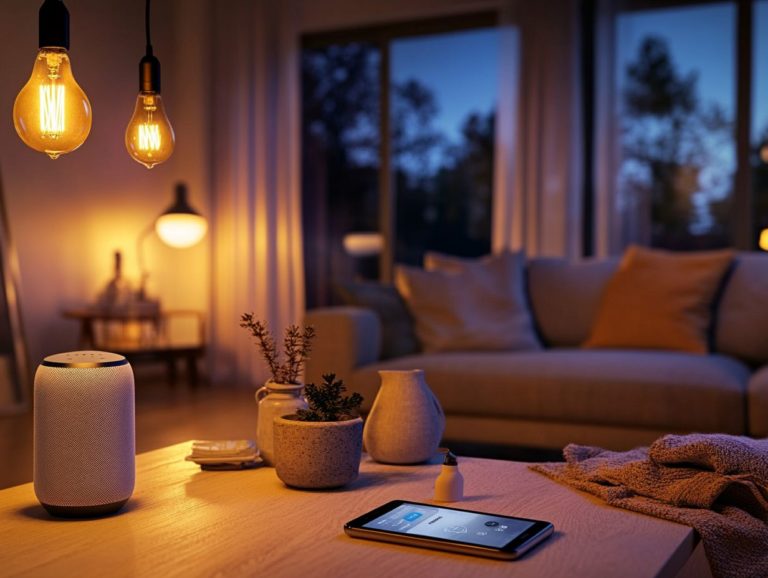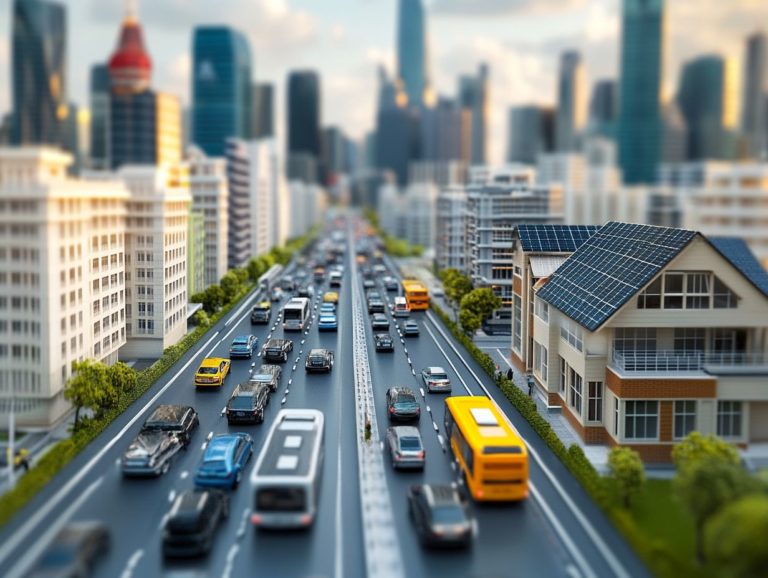How Do Energy Efficient Appliances Work?
In today’s world, grasping the concept of energy efficiency has never been more vital. As you aim to minimize your environmental footprint while slashing those utility bills, energy-efficient appliances, including advanced HVAC (Heating, Ventilation, and Air Conditioning) systems and water heaters, become indispensable allies in your home.
Join us as we explore the exciting world of energy efficiency! This article will help you understand what energy efficiency truly entails, diving into the science behind these groundbreaking appliances. You ll discover the mechanics of energy consumption and waste in traditional models, unveiling the key features that elevate modern appliances to a new standard of efficiency.
We ll guide you through the various types available, equipping you with practical tips to maximize their effectiveness.
Get ready to discover how to make smarter choices that not only benefit your wallet but also contribute positively to our planet.
Contents
- Key Takeaways:
- Understanding Energy Efficiency
- The Science Behind Energy Efficient Appliances
- Key Components of Energy Efficient Appliances
- Types of Energy Efficient Appliances
- Tips for Maximizing Energy Efficiency
- Frequently Asked Questions
- What are energy-efficient appliances?
- How do energy-efficient appliances work?
- What are the benefits of using energy-efficient appliances?
- Do energy-efficient appliances cost more than regular appliances?
- How can I tell if an appliance is energy-efficient?
- Can I make my current appliances more energy-efficient?
Key Takeaways:
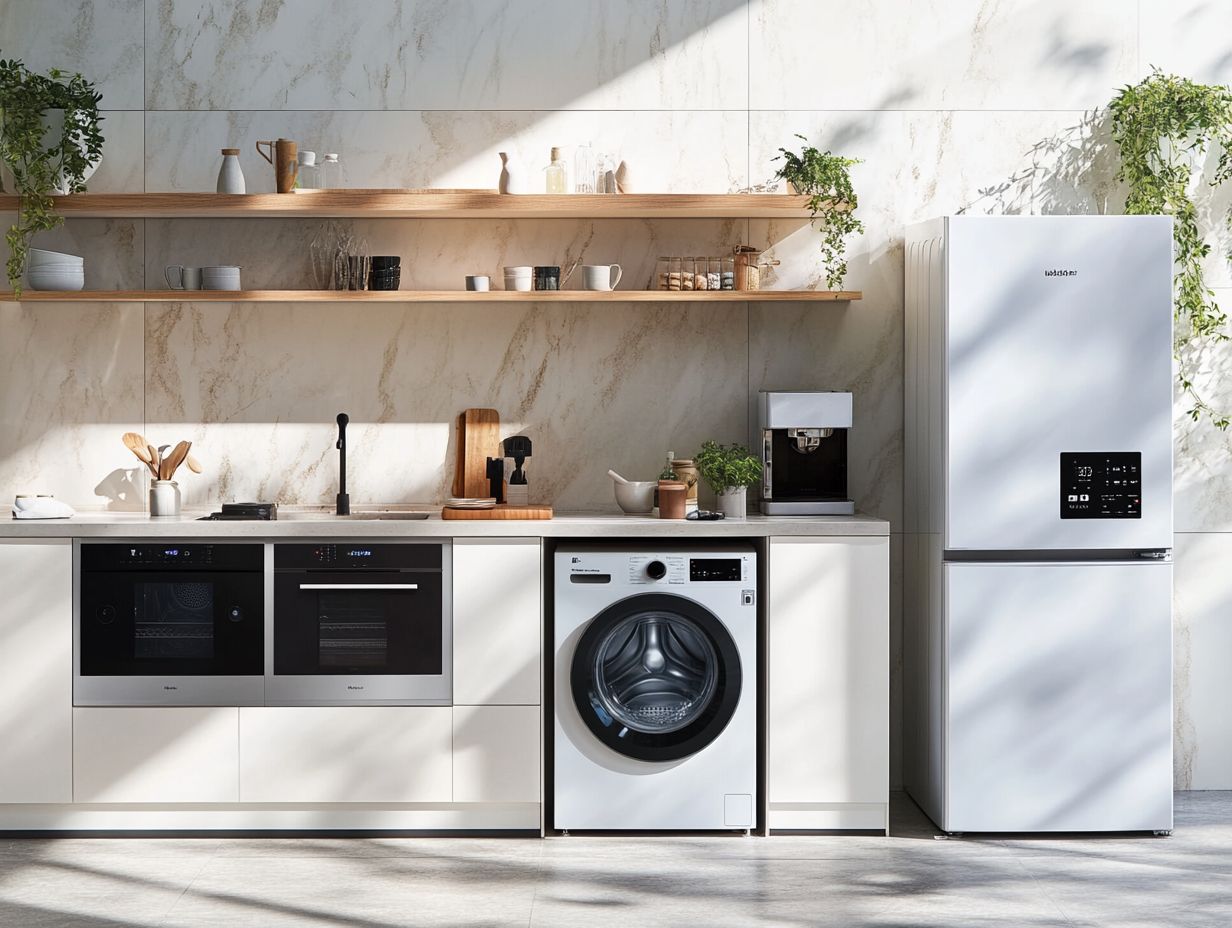
- Energy-efficient appliances use advanced technology to reduce energy consumption and lower utility bills.
- Proper insulation, efficient motors, and compressors are key components that make energy-efficient appliances work.
- Choosing the right type of energy-efficient appliance and using it properly can significantly increase energy savings.
Understanding Energy Efficiency
Understanding energy efficiency is essential for you if you want to reduce electricity consumption and keep those energy bills in check. It involves using energy-efficient appliances and technologies designed to promote energy savings. This is especially vital in today’s world of rising energy costs and the urgent need for sustainable development to tackle climate change.
By prioritizing energy conservation strategies and adopting effective energy management practices, you can significantly cut your carbon emissions and make a positive impact on the environment.
What is Energy Efficiency?
Energy efficiency is all about using less energy to achieve the same level of service, translating into substantial energy savings and a notable reduction in waste. This principle is vital not just in your home but also in commercial and industrial settings, where it optimizes the performance of various systems and appliances.
Consider energy-efficient appliances like refrigerators, washing machines, and HVAC systems. These devices leverage advanced technologies to consume less power while offering the same or even better functionality. By embracing these energy-saving options and learning about Understanding Energy Star Ratings in Appliances, you can significantly cut your overall energy consumption, leading to lower utility bills and a smaller carbon footprint.
Integrating smart technologies enables you to monitor and manage your energy usage more effectively. This makes it easier for both individuals and businesses to implement energy-saving measures that align with their goals.
The Science Behind Energy Efficient Appliances
The science behind energy-efficient appliances invites you to explore how these devices are meticulously engineered to enhance energy performance. By minimizing energy consumption and operational costs, they ultimately pave the way for lower energy bills and a reduced carbon footprint. Embracing these innovations benefits not only your wallet but also contributes positively to the environment.
How Energy is Used and Wasted in Traditional Appliances
Traditional appliances often showcase high energy consumption rates, resulting in substantial energy waste and escalating costs. The lack of optimized technology in these older models is a key factor in this inefficiency.
This inefficiency becomes especially clear with devices like refrigerators, air conditioners, and HVAC systems, which continuously consume power even when not actively in use. Older designs tend to prioritize functionality over energy efficiency, leading to inflated monthly utility bills and significantly contributing to carbon emissions, a major driver of global warming. Consider creating energy-efficient home appliances to help mitigate these issues.
With utility prices skyrocketing and environmental concerns mounting, now is the time to consider modern alternatives. Emphasizing energy conservation and replacing outdated appliances with energy-efficient models that meet current standards not only promotes economic savings but also helps reduce your carbon footprint.
Take the first step towards energy savings today!
Key Components of Energy Efficient Appliances
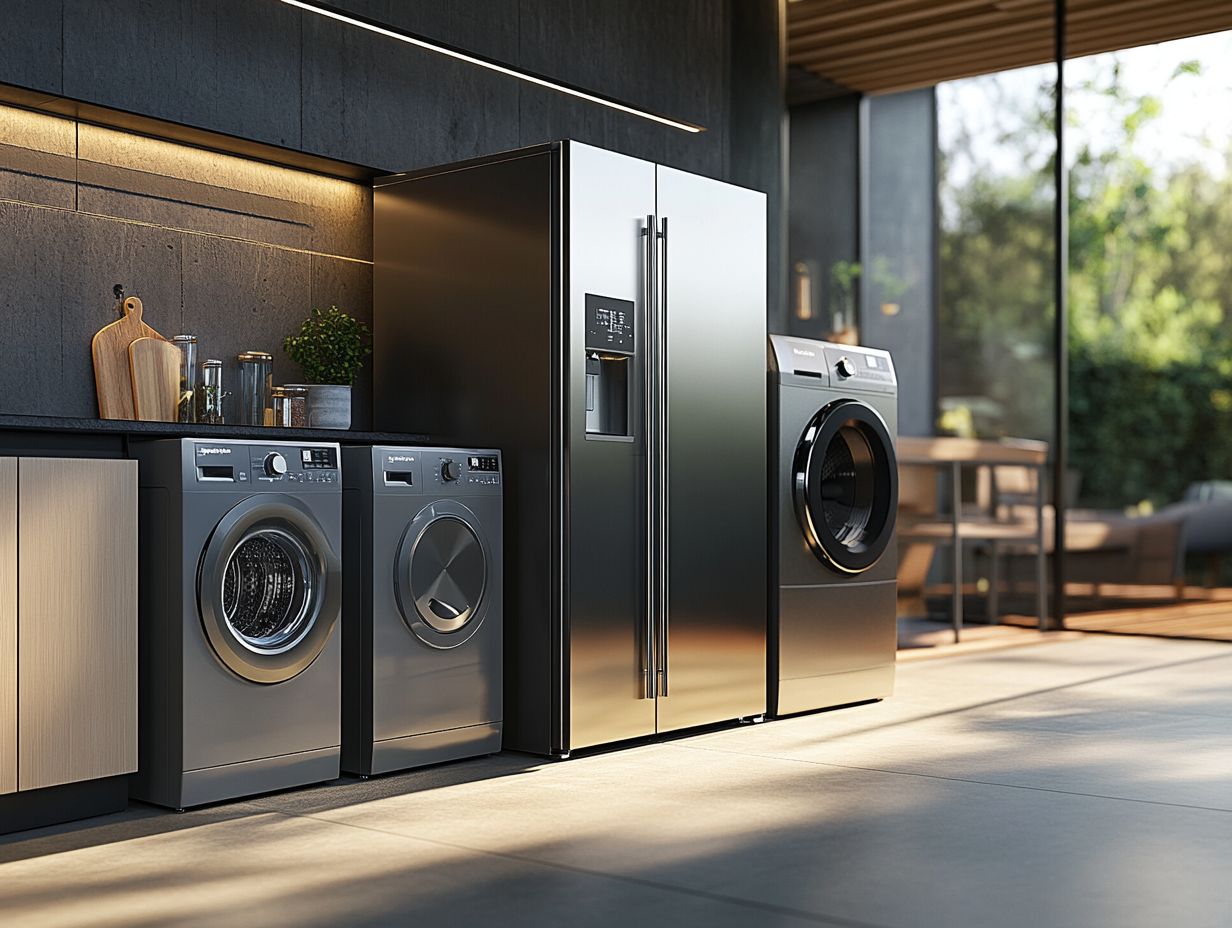
Key components of energy-efficient appliances include advanced insulation, high-performance motors, and innovative compressors. These elements boost energy performance and cut down electricity use.
Insulation and Sealing
Insulation and sealing are crucial for energy-efficient appliances. They help maintain optimal temperature levels and reduce energy consumption.
Discover how materials like fiberglass, foam board, and cellulose make a huge difference by minimizing heat transfer. This allows your appliances to operate at peak efficiency.
Incorporating sealing techniques, such as caulking and weatherstripping, further enhances the airtightness of these units.
By effectively utilizing these insulation types alongside sealing methods, you can experience substantial energy savings. Not only do these strategies contribute to a more sustainable environment, but they also lead to significantly lower heating and cooling costs, making them a wise investment for the future.
Efficient Motors and Compressors
Efficient motors and compressors are essential in energy-efficient appliances. They allow appliances to operate with less energy while maintaining the same performance levels.
This not only contributes to lower utility costs but also helps reduce carbon emissions. By using new technologies, these components optimize their operations, making them faster and more reliable.
For example, washing machines with variable speed motors adjust power consumption based on load size and wash cycle, resulting in significant energy savings. Refrigerators with smart compressors maintain optimal temperature settings without excessive energy use, keeping your food fresh while reducing electricity bills. To learn more about making informed choices, check out this guide on how to choose energy-efficient appliances.
The integration of these cutting-edge technologies is crucial for enhancing the overall energy efficiency of household appliances, paving the way for a more sustainable lifestyle.
Types of Energy Efficient Appliances
You have access to a wide array of energy-efficient appliances meticulously crafted to enhance energy performance and minimize consumption. By choosing these appliances, you can achieve substantial energy savings in both your home energy use and your business operations.
Appliances with the Highest Energy Savings
Certain appliances, like ENERGY STAR-rated products and LED lighting fixtures, offer exceptional energy savings thanks to their innovative technology and efficient performance.
These appliances are designed to consume up to 50% less energy than their traditional counterparts, making a notable impact on your energy bills. For instance, switching to an ENERGY STAR refrigerator could save you about $200 over its lifetime.
LED bulbs use around 75% less energy, leading to lower electricity costs and less strain on power plants.
By opting for these efficient alternatives, you not only enjoy reduced expenses but also help minimize carbon footprints, fostering a healthier environment. As awareness of these benefits grows, more households are embracing energy-saving solutions, creating a ripple effect that promotes sustainability in everyday life.
Factors to Consider When Purchasing Energy Efficient Appliances
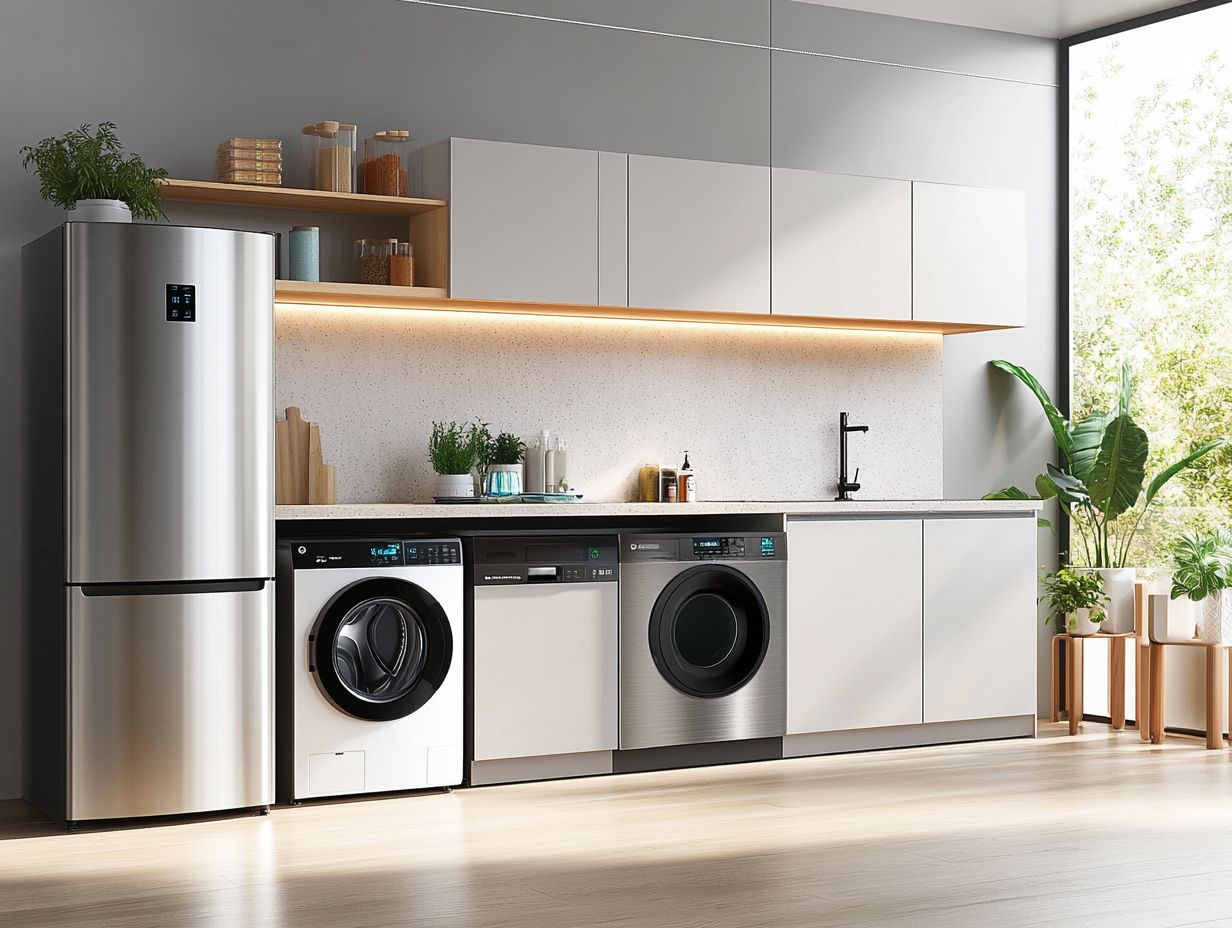
When you re considering the purchase of energy-efficient appliances, several key factors come into play, such as energy performance ratings, appliance standards, and the potential utility costs associated with their operation.
Among these, ENERGY STAR ratings emerge as a credible benchmark, indicating superior energy efficiency. This label helps you evaluate your options and plays a significant role in achieving long-term savings on your electricity bills.
As a savvy shopper, pay attention to the energy consumption data on product labels. Knowing how much energy an appliance will use over time can uncover potential cost benefits you might not have initially considered.
It’s wise to assess your household needs whether you require high-capacity washing machines or efficient refrigeration units. This ensures that the products you select align with your lifestyle demands while maximizing efficiency.
Tips for Maximizing Energy Efficiency
To maximize energy efficiency, embrace a smart plan that combines energy-efficient appliances, smart thermostats, and thoughtful energy conservation practices. This strategy leads to substantial energy savings and effectively reduces your energy costs.
Proper Use and Maintenance
Proper use and maintenance of energy-efficient appliances is vital for maximizing energy efficiency and reducing waste. This ensures they run efficiently for a long time while lowering electricity consumption and carbon emissions.
Prioritizing cleanliness is crucial, as dirt and grime can significantly hinder performance. Regularly check for leaks, ensure seals are intact, and clean filters. This can help prevent minor issues from becoming major headaches, saving energy and improving overall performance.
Consult the user manual for specific troubleshooting techniques tailored to each appliance. When you encounter complications beyond a simple DIY fix, knowing when to call in a professional can save you both time and money, especially for HVAC systems and electrical appliances.
By following these best practices, you can enjoy optimal energy savings, lower your energy bills, and extend the life of your valuable appliances.
Other Energy Saving Practices
Along with using energy-efficient appliances, you can boost your overall energy efficiency by embracing other energy-saving practices. This includes harnessing renewable energy sources and developing energy conservation habits.
Smart Thermostats
Incorporating smart thermostats gives you precise temperature control and allows you to set schedules that sync with your daily routine. This cuts down on unnecessary energy consumption and enhances your home energy management.
Renewable Energy Solutions
By integrating renewable energy solutions, such as solar panels, you can generate clean energy. When combined with energy-efficient appliances, this leads to impressive long-term savings.
These interconnected strategies create a comprehensive approach to energy management and sustainable development, benefiting both your household budget and the environment by reducing greenhouse gases.
Frequently Asked Questions
What are energy-efficient appliances?
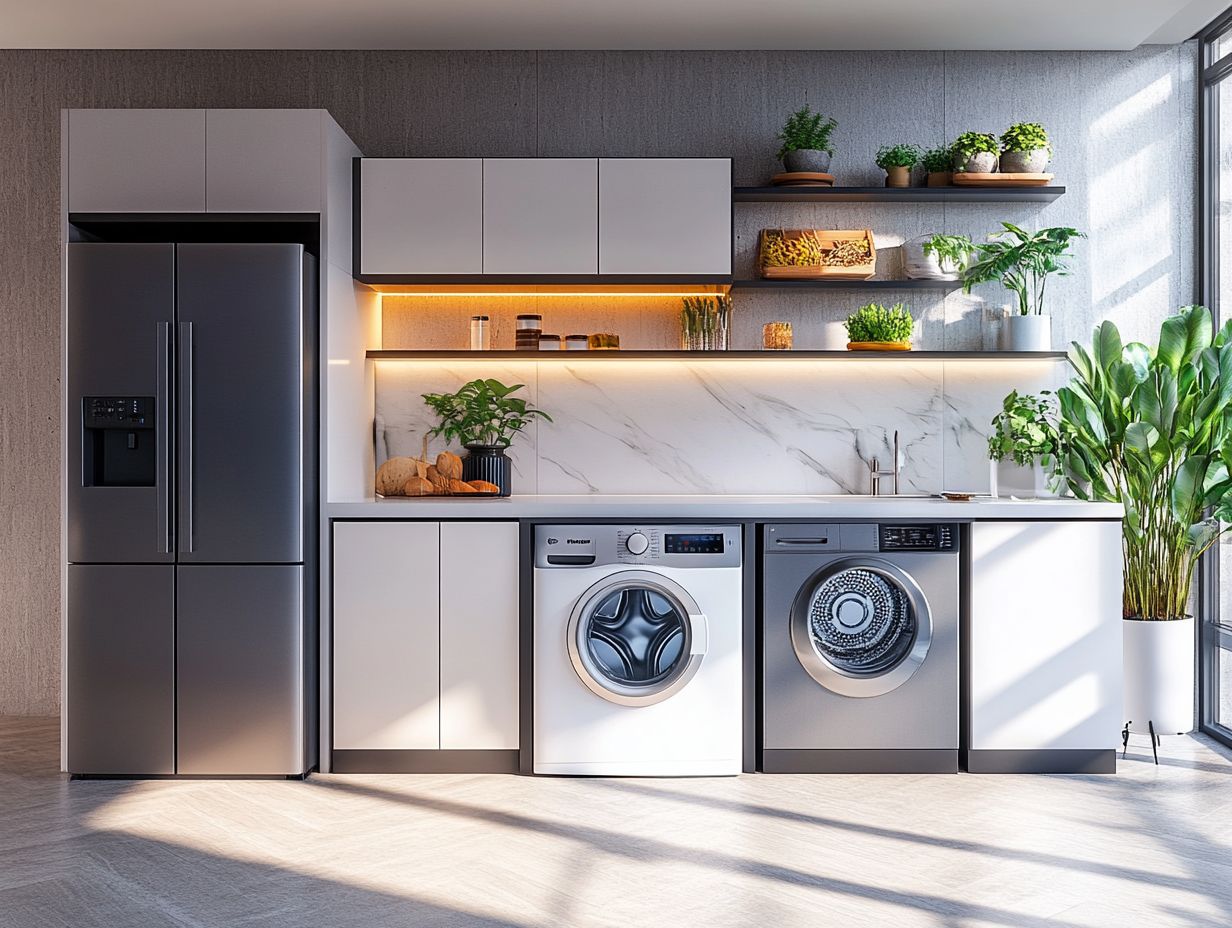
Energy-efficient appliances are designed to use less energy while still providing the same functionality as regular appliances. They are built with advanced technology that optimizes energy consumption, reducing energy waste and lowering utility costs.
Want to save more on your energy bills? Start making smart choices today!
How do energy-efficient appliances work?
Energy-efficient appliances use advanced technology to reduce energy consumption and waste. For instance, they may have sensors that adjust temperature settings automatically or improved insulation that prevents heat loss.
These features allow the appliances to consume less energy without sacrificing performance, making them essential for improving energy use in homes.
What are the benefits of using energy-efficient appliances?
There are several benefits to using energy-efficient appliances. First, they can significantly lower your energy bills. Second, they reduce your environmental impact, and third, they tend to have a longer lifespan.
Energy-efficient appliances also enhance indoor air quality and create a more comfortable living environment. Start saving on your energy bills today!
Do energy-efficient appliances cost more than regular appliances?
Generally, energy-efficient appliances may have a higher upfront cost compared to regular appliances. However, they help manage energy costs over time, and the long-term savings can offset this initial expense.
Many governments offer rebates and incentives for purchasing energy-efficient appliances, making them more affordable.
How can I tell if an appliance is energy-efficient?
Keep an eye out for the Energy Star label it s your quick ticket to finding energy-efficient products! This label, awarded by the Environmental Protection Agency (EPA), signifies that the appliance meets specific energy efficiency standards.
You can also research the appliance’s energy consumption and compare it to similar products to gauge its efficiency.
Can I make my current appliances more energy-efficient?
Yes! You can take steps to enhance the efficiency of your current appliances. Simple actions, like upgrading to LED lighting and improving thermal insulation in your home, can make a difference.
Additionally, unplug appliances when not in use, clean or replace air filters regularly, and use them responsibly like only running the dishwasher when it’s full.
Investing in energy-saving devices, such as power strips or smart thermostats, can also help reduce energy waste and enhance energy security.



